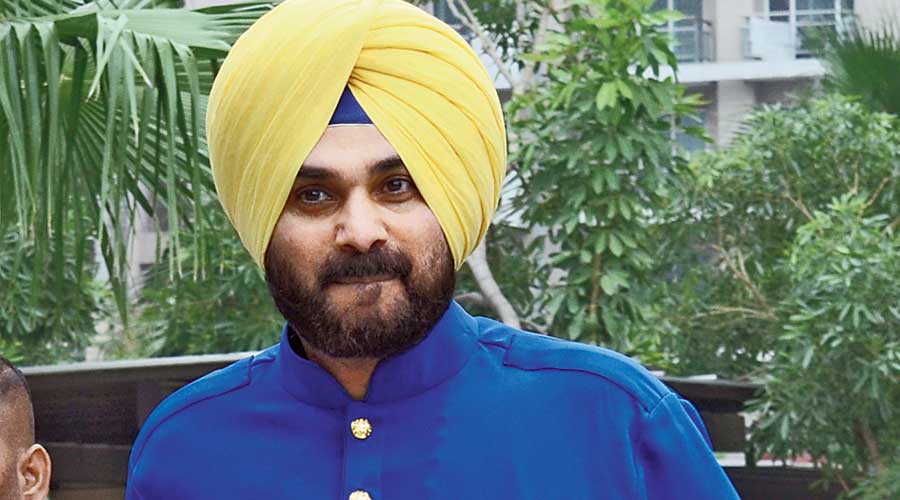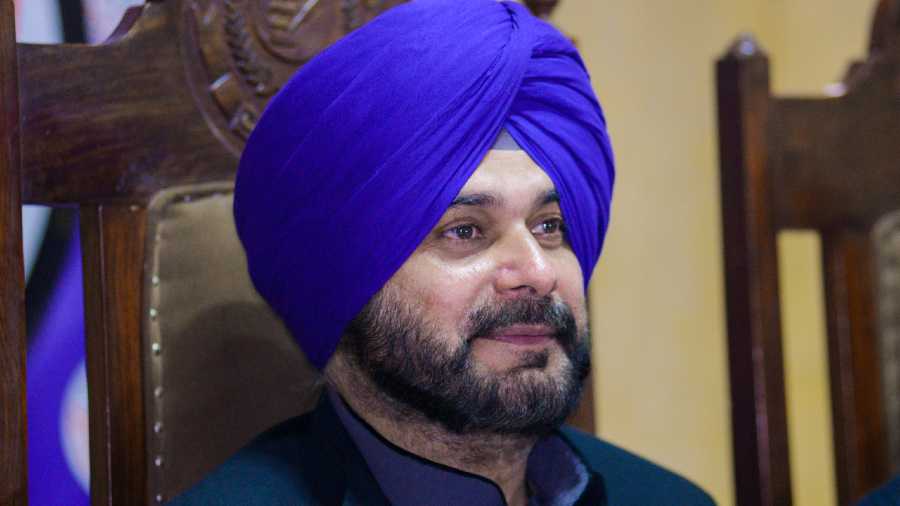The Supreme Court Thursday imposed a sentence of one-year rigorous imprisonment on cricketer-turned-politician Navjot Singh Sidhu in a 1988 road rage case, saying any undue sympathy to impose an inadequate sentence would do more harm to the justice system and undermine the public confidence in the efficacy of law.
Soon after the verdict, Sidhu tweeted, "Will submit to the majesty of law …"
The apex court said in the given circumstances, tempers may have been lost but then the consequences of the loss of temper must be borne.
The top court, while allowing the review plea filed by the complainant on the issue of the sentence, said it is a case where some germane facts for sentencing appear to have been lost sight of while imposing only a fine on the Congress leader.
Though the apex court had in May 2018 held Sidhu guilty of the offence of "voluntarily causing hurt" to a 65-year-old man, it spared him a jail term and imposed a fine of Rs 1,000.
Noting that the hand can also be a weapon by itself where a boxer, wrestler, cricketer, or an extremely physically fit person inflicts a blow, the apex court said it does believe that indulgence was not required to be shown at the stage of sentence by only imposing fine and letting Sidhu go without any imposition of sentence.
The result of the aforesaid is that the review applications/petitions are allowed to the aforesaid extent and in addition to the fine imposed we consider it appropriate to impose a sentence of imprisonment for a period of one-year rigorous imprisonment to be undergone by respondent no.1 (Sidhu), a bench of Justices A M Khanwilkar and S K Kaul said.
It said some material aspects which were required to be taken note of appeared to have been somehow missed out at the stage of sentencing, such as the physical fitness of Sidhu as he was an international cricketer, tall and well-built, and aware of the force of a blow that even his hand would carry.
The blow was not inflicted on a person identically physically placed but a 65-year-old person, more than double his age. Respondent no.1 (Sidhu) cannot say that he did not know the effect of the blow or plead ignorance on this aspect, it said.
It is not as if someone has to remind him of the extent of the injury which could be caused by a blow inflicted by him. In the given circumstances, tempers may have been lost but then the consequences of the loss of temper must be borne, the court said.
The bench noted the top court, to some extent, had been indulgent in ultimately holding him guilty of the offence of simple hurt under section 323 of the Indian Penal Code (IPC) and the question is whether even on sentence, the mere passage of time can result in a fine of Rs 1,000 being an adequate sentence where a person has lost his life by reason of the severity of blow inflicted by Sidhu, who was 25-year-old at that time, with his hands.
Section 323 (punishment for voluntarily causing hurt) of IPC entails a maximum jail term of up to one year or with a fine which may extend to Rs 1,000 or both.
The hand can also be a weapon by itself where say a boxer, a wrestler or a cricketer or an extremely physically fit person inflicts the same. This may be understood where a blow may be given either by a physically fit person or to a more aged person, the bench said.
It said that insofar as the injury caused is concerned, the top court has accepted the plea of a single blow by hand being given on the head of the deceased.
In our view, it is this significance which is an error apparent on the face of the record needing some remedial action, it said.
In its 24-page judgement, the bench deliberated on the necessity of maintaining a reasonable proportion between the seriousness of the crime and the punishment.
While a disproportionately severe sentence ought not to be passed, simultaneously it also does not clothe the law courts to award a sentence which would be manifestly inadequate, having due regard to the nature of the offence, since an inadequate sentence would fail to produce a deterrent effect on the society at large, the court said.
It said the principle of just punishment is the bedrock of sentencing in respect of a criminal offence.
An important aspect to be kept in mind is that any undue sympathy to impose inadequate sentence would do more harm to the justice system and undermine the public confidence in the efficacy of law, it said.
Meanwhile, it unequivocally rejected the argument for expanding the scope of the review application.
In September 2018, the apex court had agreed to examine the review petition filed by the family members of the deceased and had issued the notice, restricted to the quantum of sentence.
The apex court had on May 15, 2018, set aside the Punjab and Haryana High Court order convicting Sidhu of culpable homicide and awarding him a three-year jail term in the case, but had held him guilty of causing hurt to a senior citizen.
The top court had also acquitted Sidhu's aide Rupinder Singh Sandhu of all charges saying there was no trustworthy evidence regarding his presence along with Sidhu at the time of the offence in December 1988.
The May 2018 verdict had come on the appeal filed by Sidhu and Sandhu challenging the high court's 2006 judgement convicting them.












